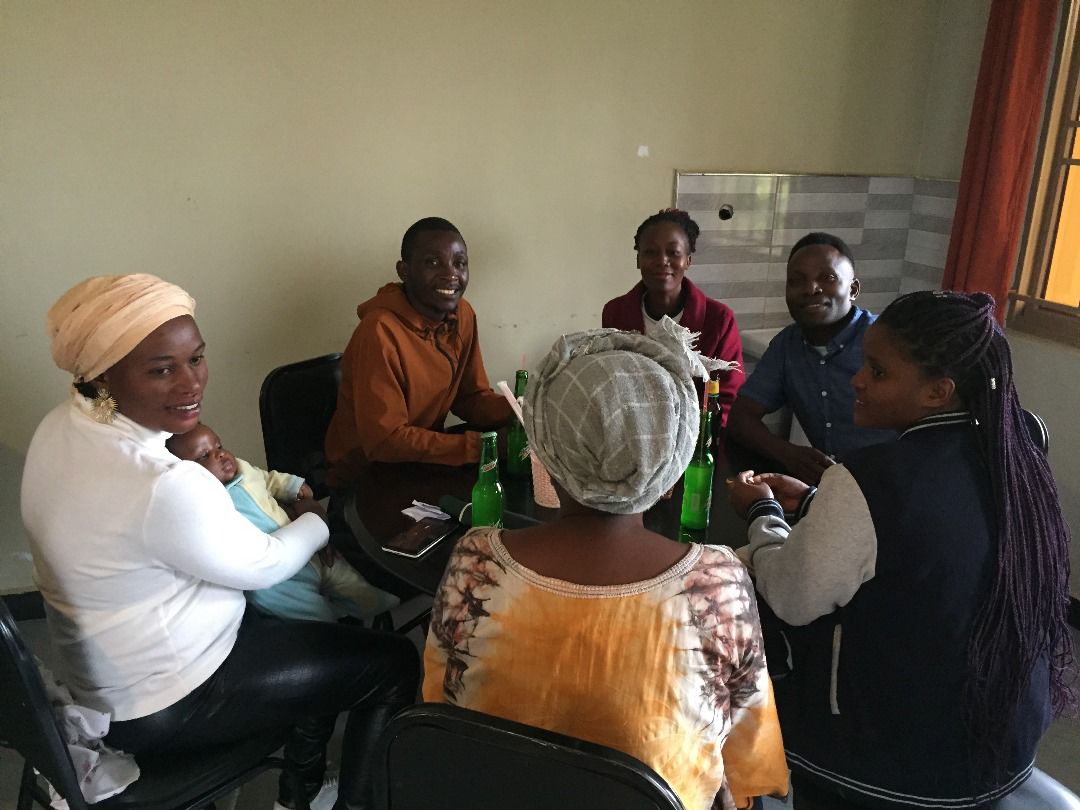In this episode of Voices from the Ground, I explore what it really means to be close to the community; and how trust-building and human relationships can reveal truths that reports and project metrics often miss.
Recently, I spent time with a group of refugee women leaders in Rwamwanja settlement. I didn’t go with an agenda or PowerPoint. I just showed up as usual; to listen, to learn, and to be present. We met at a local bar and had a cordial and unfiltered interaction.
What followed was a deeply honest conversation. One that reminded me how even the most passionate, well-meaning refugee-led organisations (RLOs) can unknowingly pick up practices that may look good from a donor’s point of view; but don’t actually help people in real, practical ways.
It started when Peruth, one of the leaders, mentioned that her team distributes soap to vulnerable community members. We gently asked why. Was it something the community had asked for?
She went quiet for a moment. Then said, “We do it so we can take pictures; so donors can see we are doing something.”
And then, almost in a whisper, “Sometimes even we, the group members, don’t have soap. But for visibility, we give it to others.”
That was a heavy moment. What should have been a helpful act had become something else; a way to survive in a system that often rewards visibility over value. And sadly, this wasn’t an isolated story.
Another leader shared how, on World Refugee Day, an organisation gave out maize flour (posho). People took pictures and shared them on social media. But soon after, some recipients quietly sold the flour. It wasn’t what they truly needed; but it made for a good photo.
We also spoke to a group doing sandal-making training. We asked whether people in the settlement were actually buying sandals. They said no; but they felt this kind of vocational training is what donors expect to see.
These conversations point to something deeper: the need to unlearn in order to learn again. Under pressure from years of chronic underfunding, many RLOs end up copying the behavior of INGOs; because it seems like the only way to be taken seriously. They start shaping programs and language to fit what they think funders want. But in doing so, they risk losing touch with the real needs, hopes, and priorities of the people around them.
And this is where the role of grassroots initiatives becomes so important.
Grassroots leaders; especially those who live the realities they’re working to change; have a unique chance to do things differently. But they, too, must pause and reflect. They must ask themselves: Are we doing this because it really helps? Or because it makes us look helpful?
Being close to the problem is not just about geography. It’s about mindset. It means listening to your community, even if the answers don’t fit into a funding proposal. It means having the courage to say, That might be what donors expect, but it’s not what people here need.
I was honest with them. I told them that at Cohere, we don’t expect perfect pictures. We want them to focus on what truly matters. When I again asked what drives the economy in Rwamwanja, they all said: maize and beans. So why not focus there? Why sandals or soap if farming is what really sustains families?
I also reminded them that at Cohere, that’s why we are advocating for flexible funds; so that grassroots leaders can invest in what really counts. Because needs change. And in places like Rwamwanja, what works today may not work tomorrow. Only those close enough to feel the shifts can respond in time.
At the end of our time together, two things stayed with me:
First, the women leaders said they had never sat together in a space like this — even though they all live in the same settlement. That simple act of gathering gave them a chance to connect, share, and reflect.
Second, they told me they hadn’t expected someone from an INGO to come sit with them like a friend in such a setting; with no microphone, no report form; just to listen, ask questions, and offer encouragement.
For me, that’s the point of it all.
As INGOs and donors rush to “embrace localisation” and “shift power to the grassroots”, we have to be honest about what that really means. It’s not just about handing over funds or responsibilities. It’s about trusting local wisdom, supporting unlearning, and stepping back enough for others to lead in their own way; not in a mirror image of how INGOs have done it.
We won’t build anything lasting if we stay focused on what looks good from far away.
We have to come close. We have to sit down. We have to listen; not just to what is said, but to what’s often left unsaid.
We have to unlearn the instinct to fix; and re-learn how to relate.

Leave a Reply to Ruth Njiri Cancel reply